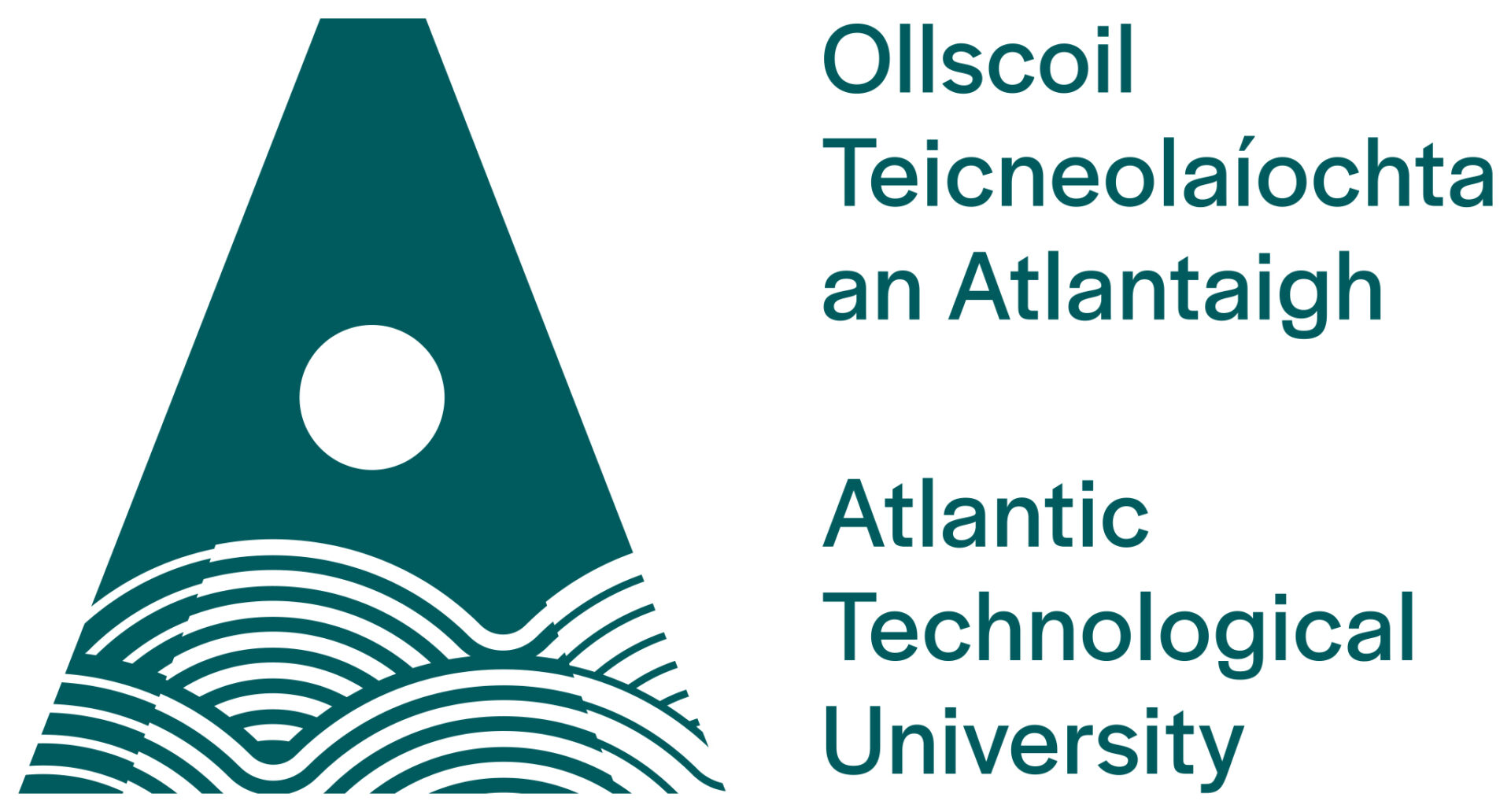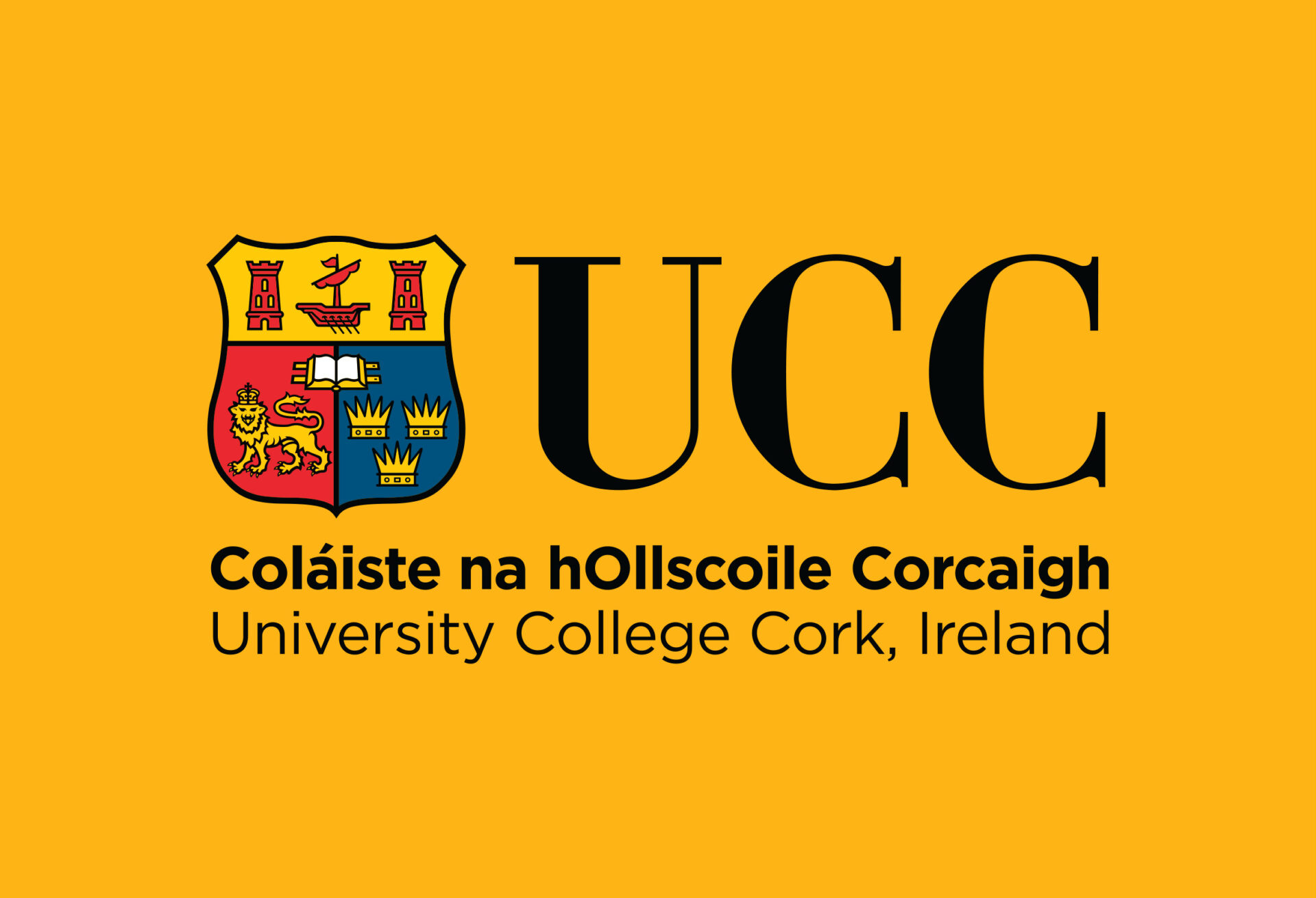Home » Irish Schools of Pharmacy: Educating the next generation of pharmacists — ATU and UCC

This month, we ask Marita Kinsella, Head of the Department of Pharmacy at Atlantic Technological University and Prof. Brendan Griffin, Head of the School of Pharmacy at University College Cork, a series of questions.


What inspired the establishment of this School of Pharmacy, and can you share the vision and mission of your School of Pharmacy?
As a new university established in 2022, with a strong history in pharmaceutical sciences, ATU’s vision is to become an internationally renowned university that is focussed on enhancing the quality of life and creating a sustainable future for all in the Northwest of Ireland. To deliver on this vision, ATU is committed to playing its part in addressing workforce challenges in the pharmacy profession and our wider health service and enabling pharmacists to expand their role, to meet the needs of patients.
For this reason, in response to the HEA’s 2023 expression of interest process to provide additional training places in pharmacy, ATU’s Sligo campus was focussed on expanding its established reputation in pharmaceutical sciences and offering an MPharm programme in the Northwest region. The ATU bid was successful and highlighted the specific needs in the Northwest of Ireland.
With regard to the MPharm programme in particular, our vision, mission and values are aligned to, and support the achievement of, the wider ATU vision, mission and values.
| ATU’s new Department of Pharmacy and Pharmaceutical Sciences will seek to be recognised as a leader in outstanding pharmacy education, innovative practice, research and scholarship, driving excellence in patient care, improvement in human health, and advancing scientific knowledge. |
| Our mission, through high-quality programmes, which take account of evolving pharmacy practice, cutting-edge research and innovation and technological advances, is to develop skilled, caring and ethical pharmacists and scientists who are ready to adapt to the future needs of health services and the pharmaceutical and MedTech industries. |
| Our Values: In addition to our mission, the MPharm programme seeks to uphold the principles and ethical standards which govern pharmacists in the practice of their profession as set out in the PSI Code of Conduct for Pharmacists. |
Importantly for the Northwest region and health services nationally, ATU is committed to addressing ongoing challenges in our health workforce. In addition to the MPharm programme, which will commence in September 2025, ATU will also offer a new Physiotherapy programme at its Letterkenny campus, a new Dietetics programme at its Sligo campus, and in September 2026, a new Veterinary programme will commence at our Letterkenny campus.
There are defined subject criteria for the MPharm curriculum, but are there other areas or topics that you plan to include, to ensure your MPharm graduates are prepared for the evolving role of pharmacists?
The ATU MPharm curriculum is strongly horizontally and vertically integrated so that students learn in a manner that integrates science into practice and understand the importance of continuous learning. Students will develop the knowledge and skills necessary to solve real world problems and benefit patient care. We are particularly proud of our very exciting programme of patient engagement, professional skills and interprofessional learning. Through these activities our students will be prepared for their patient care role as part of the wider healthcare team as the role of the pharmacist evolves.
The ATU MPharm programme also has a strong focus on ensuring that our graduates have excellent digital skills, taking account of the fact that pharmacists can be key leaders at the cusp of significant digital transformation in the health sector.
ATU’s MPharm will also seek to embed key clinical and management skills so that as the pharmacy profession expands its scope of practice, our students will be confident and ready to take on these new roles.
Finally, our overarching research theme is sustainable healthcare. This theme is brought through our spiral curriculum and underpins the MPharm programme. Our students will develop strong research skills enabling them to stay abreast of current pharmacy research and to be prepared for the evolving role of the pharmacist, whether this is in practice, industry or other fields.
What is the planned annual intake of students to your course
ATU has been funded for an initial intake of 36 CAO places. The Department of Pharmacy and Pharmaceutical Sciences is committed to developing a very personal student experience through smaller class sizes but will closely monitor the ongoing workforce needs of the profession regionally and nationally and will adapt accordingly.
What type of social and extracurricular activities will be available to students?
Sligo combines a vibrant urban centre with stunning natural beauty and is the perfect setting for an unforgettable student experience.
The MPharm course will take place on our 72-acre Green Campus which combines modern buildings, state-of-the-art facilities and landscaped grounds, an innovation hub, as well as a new creative hub for arts and a multi-purpose sports facility. ATU believes that sport is for everyone, and we have something to suit all abilities and interests.
We encourage students to join at least one club or society, and with a huge variety to choose from, ATU has something for everyone.
These clubs and societies are subsidised, so they are free, as are most of the activities they offer. If you can’t find the right club for you, you can even start your own.
The campus is just a ten-minute walk from the centre of Sligo, whilst our location along the Wild Atlantic Way means beaches, mountains and countryside are all just a short trip away.
We have developed an MPharm specific induction programme for our students which will run alongside the established ATU ‘first five weeks programme’ to help students successfully make the transition to university life and take advantage of all that ATU has to offer.
We will support our students to feel very connected to the pharmacy profession through our Local Pharmacy Leaders initiative. We will encourage our students to undertake the LIFT leadership programme, here at ATU and establish a Pharmacy Students Association, aligned to both the Irish and European Pharmaceutical Students Association, so that ATU students will have the confidence and skills to become future pharmacy leaders.
What mechanisms will the School of Pharmacy use to engage with all sectors of pharmacy in your region, and what benefits do you hope to see from this engagement?
As a technological university, our mission is to enable sustainable economic, social, and cultural development for our region.
Our Strategic Advisory Group has been in place for a year now including pharmacists from all sectors and from all counties across the region to help ATU understand and respond to the evolving needs of the pharmacy profession. We have been really heartened and humbled by the engagement and support from our pharmacy colleagues across the Northwest, who are unswerving in their desire to give back to the profession. We held our Inaugural open evening in February 2025, which was incredibly well attended and have had excellent responses to our surveys investigating the local needs of the profession. We will be starting local roadshows across the region in the Autumn as part of an ongoing pharmacy engagement plan. Our ambition is to build lasting mutually supportive partnerships with the profession to enhance pharmacy and health in the region.
How does the School of Pharmacy plan to contribute to the longevity and sustainability of the pharmacy profession in Ireland?
Sustainability is one of the underpinning themes of the ATU MPharm course. We consider sustainability in very broad terms. The new MPharm brings advantages for the profession in addressing long-term workforce challenges, as well as infusing the vibrancy and learning opportunities that placement students bring to pharmacies. ATU is also committed to working with the profession to address new and ever-evolving challenges such as expanding roles, digital transformation, changing work practices and demands. The Department will achieve this through collaboration with pharmacy to meet the learning and research needs of the profession. From an environment perspective, ATU Sligo has a significant track record in environmental sustainability, and we are looking forward to innovating with pharmacists on how, as a profession, we can play our part in addressing the challenges of climate change.
In what ways will the School of Pharmacy collaborate with the HSE, IPU, PSI, IIOP and other stakeholders to enhance pharmacy education and practice?
At ATU, we have been heartened by the excellent engagement and already established with pharmacy and health service bodies. We are keen to play our part in contributing to the advancement of pharmacy education and practice and are looking forward to building collaborations with the PSI, IPU, IIOP and other pharmacy organisations in relation to pharmacy education, practice and research.
We have established a strong engagement with APPEL, and ATU is committed to collaborating with the other Schools of Pharmacy in offering high quality placement supports to preceptors, pharmacists and students.
In addition to our excellent relationships with HSE hospital and primary care pharmacists in the region, through ATU’s Memorandum of Understanding with HSE West and Northwest, we have a strong basis for ongoing collaboration with the HSE.
Any interesting vignettes on the impact of the school of pharmacy on the health and wellbeing of your local region.
The ATU’s MPharm programme is focussed on regional needs and we have been delighted to partner with local patient support organisations so that our students can learn from local patients to understand the challenges experienced by patients in the North West. As the new programme rolls out, these partnerships will provide real opportunities for our students to engage in health and wellbeing initiatives that are tailored to the needs of our communities in the Northwest.
Further information on ATU’s Master of Pharmacy Programme is available at atu.ie/faculties/science-health/pharmacy.


What inspired the establishment of this School of Pharmacy, and can you share the vision and mission of your School of Pharmacy?
The School of Pharmacy at UCC recently marked its 20th anniversary, celebrating two decades of excellence and impact in pharmacy education and research. This milestone coincided with the launch of the School’s new Vision and Strategic Implementation Plan 2023 – 2028.
Located in a new purpose-built facility on UCC’s main campus, the School boasts state-of-the-art research and teaching spaces. These cutting-edge resources support ambitious research initiatives and foster a student-centred learning environment that empowers every student to reach their full potential.
The School’s vision is to become a leading institution for excellence in pharmacy education, driving impactful pharmaceutical innovation and advancing sustainable pharmaceutical care. The School’s Values, established through staff surveys, are integrity, innovation, inclusivity, and impact. The ‘4i values’ are integral to the School’s culture and guide the School’s mission to grow and empower the next generation of leaders in pharmacy for integrity, integrity, innovation, inclusivity, and impact.
There are defined subject criteria for the MPharm curriculum, but are there other areas or topics that you have included, to ensure your MPharm graduates are prepared for the evolving role of pharmacists?
The BPharm and MPharm programme in the School of Pharmacy UCC delivers a spirally integrated curriculum that develops an increasing patient and clinical skills focus year-on-year. This promotes a deeper understanding of the scientific and clinical practice principles, fostering deeper understanding and improved application of knowledge in pharmacy practice settings. The School implements a dynamic and engaging Interprofessional Education (IPE) programme for students. The programme prepares students for future collaborative practice in multidisciplinary healthcare settings, developing competencies in teamwork, communication and collaboration. Given the unique high number of health and social care programmes in UCC, our students have the opportunity to collaborate with students from a wide variety of programmes, such as Medicine, Nursing and Midwifery, Dentistry, Paramedicine, Speech and Language Therapy and Social Work to name a few. The IPE sessions mirror real-world health environments and scenarios, with several taking place in our affiliated teaching hospitals, enhancing authenticity and relevance of learning. Patient engagement is core to our curriculum with patients and experts by experience contributing to the curriculum and students have many opportunities to engage with patients in our affiliated teaching hospitals and community pharmacies.
Another highlight of our curriculum is the opportunity to undertake an international placement in fourth-year as part of the structured placement programme. The international placements are very positively received by students who gain research experience skills in internationally renowned universities.
What is the annual intake of students to your course?
70 student per year
What type of social and extracurricular activities are available to students?
The UCC School of Pharmacy takes great pride in the vibrant social and extracurricular life enjoyed by its students — an integral part of the overall pharmacy student experience. Both faculty and students actively contribute to a wide range of activities that foster community, collaboration, and personal development.
At the heart of this is PharmSoc, the student-run, award-winning Pharmacy Society. PharmSoc organizes a variety of events throughout the academic year, including:
To support new students, the School runs a Buddy System in collaboration with PharmSoc. Each first-year student is paired with a second-year mentor early in the semester to help them settle in, navigate student life, and gain insights into studying pharmacy at UCC.
PharmSoc also plays a key role in organising non-academic events aimed at enhancing student wellbeing and enjoyment. These include invited talks on career planning, health and wellness initiatives, and more. Many of these events are generously sponsored by external partners such as Perrigo, who also support student-led initiatives with prizes and funding.
Beyond PharmSoc, the School encourages students to explore a wide range of extracurricular interests, including sports, the arts, and music, enriching their university experience both academically and personally.
What mechanisms does the School of Pharmacy use to engage with all sectors of pharmacy in your region, and what benefits have you seen from this engagement?
Stakeholder engagement is a key priority for the School of Pharmacy. Harnessing the insights, support, and expertise of pharmacists from across the profession is essential to the ongoing development of the MPharm programme and to strengthening our reputation for producing graduates equipped to meet both current and emerging needs in pharmacy and pharmaceutical care. One of the School’s flagship initiatives, ‘Town & Gown,’ fosters meaningful connections between practicing pharmacists and students. This programme integrates real-world practices into the learning experience, significantly enriching the curriculum. It offers flexible opportunities for pharmacists to engage with students in ways that suit their availability and interests — ranging from hosting second-year placement students, to contributing to the annual Pharmacy Registration Exam (PRE) at UCC, and even advancing to roles such as Teacher Practitioner or adjunct faculty appointments within the School.
In what ways does the School of Pharmacy collaborate with the HSE, IPU, PSI, IIOP and other stakeholders to enhance pharmacy education and practice?
The School of Pharmacy UCC actively collaborates with a wide range of stakeholders across the pharmacy profession, the pharmaceutical industry, and the broader healthcare sector. These partnerships include joint appointments with regional hospitals, support for PhD/MSc Clinical Pharmacy scholarships aimed at hospital pharmacists, and engagement with organisations such as the IPU and PSI through student-focused events like our annual MPharm business and careers seminar. Additionally, many of our staff play a key role in advancing continuing professional development (CPD), including contributions to initiatives like the IPU Academy, IIOP, PIER and mentoring students to pursue careers across the broad pharmacy sector.
Any interesting vignettes on the impact of the school of pharmacy on the health and wellbeing of your local region?
Since establishment, UCC has now graduated close to 1,000 pharmacists, and our graduates are highly employable with 100 per cent securing employment, across a range of pharmacy career pathways including community practice, hospital pharmacy and within the pharmaceutical industry. Many of our alumni have gone on to highly successful careers internationally and are creating real impact in pharmaceutical care as senior managers, directors and global opinion leaders, in addition to direct patient facing roles. Recently, researchers at the School published a landmark study — the first of its kind in Ireland — exploring the career trajectories of pharmacy graduates over a 15-year period. The findings revealed that over 66 per cent of UCC pharmacy graduates work in patient-centred roles, with community pharmacy being the most common sector (47.7 per cent), followed by industry (21.5 per cent), hospital pharmacy (17.7 per cent), and the remaining 13 per cent employed in academia, public bodies, or other roles.
Graduate satisfaction was notably high:
Additionally, over 92 per cent of graduates are registered with the PSI, and notably, 80.2 per cent of those in non-patient-facing roles have maintained their PSI registration, reflecting a strong professional commitment across all sectors.
Further information on UCC’s School of Pharmacy is available at ucc.ie/en/pharmacy.
This article is part of a series running in autumn 2025 on the six Irish Schools of Pharmacy. The September IPU Review included interviews with Prof. Leo Quinlan of University of Galway, and Prof. Helena Kelly of RCSI, and the October IPU Review featured interviews with Dr Claire Lennon of SETU and Dr Astrid Sasse of TCD. Both articles are available at ipu.ie/ipu-review > Previous Articles.
Sinéad McCool MPSI

Professional Services, IPU
Highlighted Articles